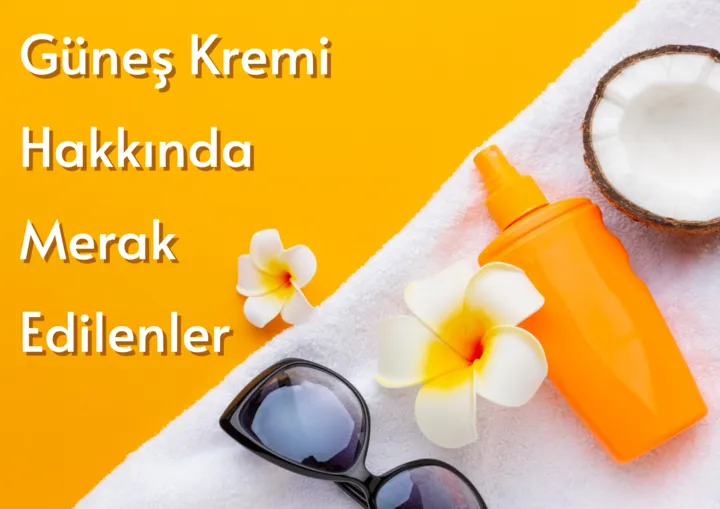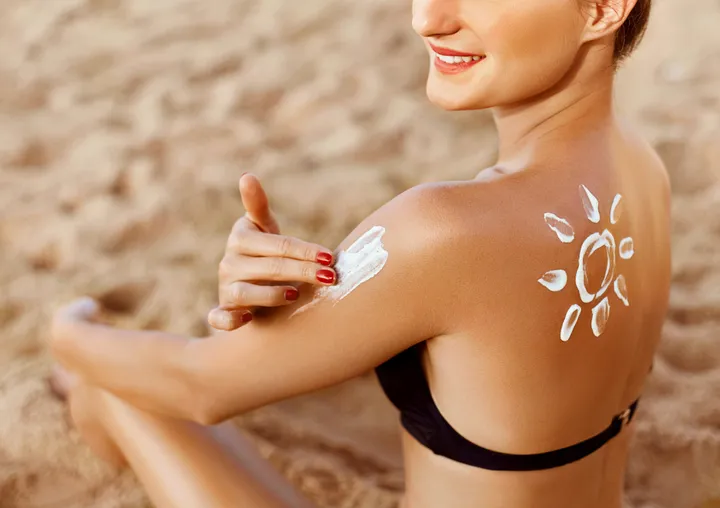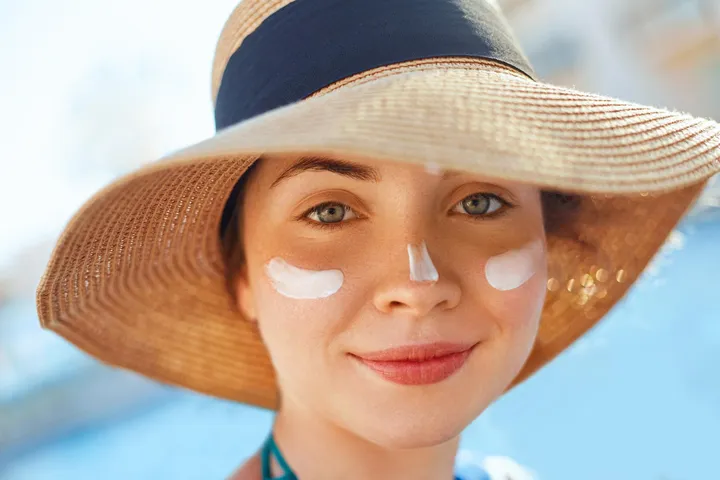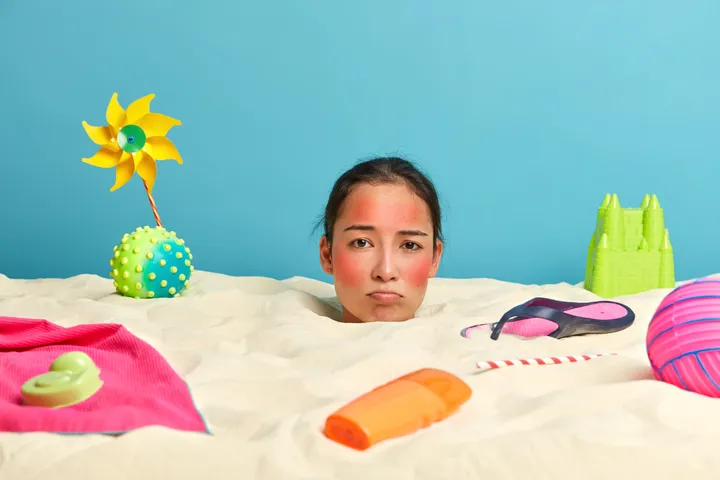Curious about sunscreen
We've covered many answers to specific questions about sunscreen purchase, use, type, and ingredient in our comprehensive guide.

As the summer season approaches, the sun's rays begin to enter through the window of our house. Although the sun's rays with their orange-tinged appearance leave a peaceful effect on us, the same may not be true for the skin surface. There are some things to consider when choosing or using sunscreen, especially on skin that is prone to staining or has uneven skin tone. Regarding the selection phase of sunscreen recently, "How to choose sunscreen?" We have prepared a guide. In this guide, we sought answers to many questions about the purchase, use and content of sunscreen. If you have some questions about sunscreens, let's answer them together.
What are the Curiosities About Sunscreen?
How often should sunscreen be renewed?
Today, one of the misconceptions about sunscreens is experienced in the name of renewal time. The vast majority of users have a misconception that sunscreen will protect for a longer period of time when its protection level (SPF) is high. For example, there may be a misconception that an SPF 50 sunscreen will last longer than an SPF 30 product and should not be renewed. However, no matter how high the protection of sunscreen is, according to the US Food and Drug Administration, sunscreens are not sweat and water resistant, so they need to be renewed periodically. According to experts, sunscreen should be renewed between 1.5 and 2 hours during the day. Especially in very hot weather, when the sweat rate is high, sunscreen may lose its effect, so it is necessary to pay attention to the frequency of renewal.
What are the things to consider in waterproof sunscreen?
Water-resistant sunscreens show how long sun protection can last while a person is swimming or sweating. However, the US Food and Drug Administration does not allow the use of these phrases on the label, as no water-resistant sunscreen will provide absolute protection against water and sweat. Although not used on the label, water-resistant sunscreens that are produced with a high water-resistance have a higher level of resistance to sea/pool water or sweat in addition to the normal ingredients. However, there may be some wrong actions that people are exposed to when using water-resistant sunscreen.
- Not Renewing the Cream After Getting Out of the Water: Users may make the mistake of not renewing the cream after getting out of the pool and sea, as they usually apply a water-resistant cream. However, as we mentioned above, although the sunscreen has a water-resistant structure, its protection is not certain. Therefore, sunscreens must be renewed after each swimming or sweating. Likewise, even if you do not enter the water, the renewal of sunscreen every 1.5-2 hours is also valid for water-based products.
- Not Cleaning the Skin After Sun Cream: Water-resistant sunscreens, which are preferred by skin with high oil content to prevent oily appearance, are quite light thanks to their water-based formula and do not weigh on the skin. Therefore, many users may make the mistake of not removing the sunscreen from the skin at the end of the day. Regardless of the content, sunscreens must be removed from the skin at the end of the day. You can use products such as tonic or facial cleanser for this.
Do you need to remove sunscreen?
The savior of summer seasons, sunscreens do not transmit the harmful effects of sun rays to the skin, thanks to the physical or chemical protective filters they contain. For this, sunscreens create an effective layer on the skin with the effect of the SPF filter. However, at this point, it is necessary to protect the skin from the long-term effects of creams. The layer formed by the creams on the skin, if not cleaned, prevents breathing and may adversely affect the vitamin D intake routines of the skin. Therefore, it is recommended by experts to clean the sunscreen off the skin at the end of the day. A sunscreen applied daily and carefully cleaned also helps to keep the skin pores healthy. In this way, sunscreen prevents the skin from being affected by harmful rays, while preventing the formation of acne and acne to a large extent.
What distinguishes shine-free and non-shiny sunscreen?

As the summer season approaches, the question “What is a non-glare sunscreen?” The question comes up frequently. Water-based or anti-shine sunscreens can be used to prevent the shine problem of especially oily skin. Anti-glare sunscreens absorb excess moisture accumulated on the surface of the skin in a short time and provide a mattifying effect thanks to the beneficial components in their content. In this way, it does not leave an oily and sticky feeling on the skin surface. Therefore, you can choose products with anti-shine and matte properties to prevent the problem of skin shine, especially in summer.
What does "Equalizes skin tone" mean in sunscreen?
human skin; may be exposed to problems such as excessive secretion of melanin hormone in the body due to daily stress, exposure to UV rays, environmental pollution or signs of aging. This can lead to visible discoloration of the skin. Problems such as shine, pigmentation, acne, sunburn or acne that occur on the skin surface over time can cause some color inequalities. Therefore, while a darker and stained surface is seen in some parts of the skin, it is possible to encounter a bright appearance in other points. As a result of these reasons, some sunscreens are produced to even out the skin tone. Tonal equalizing sunscreens help balance the natural production of melanin on the skin surface. In this way, it provides a more even skin tone.
How much sunscreen should be applied?
In order to prevent skin spots caused by sun rays, it is necessary to determine the amount of applied content well. It is recommended to apply sunscreens to all areas exposed to direct UV rays without rubbing and forming a layer. There is a method called the "two-finger rule" during the application of sunscreen to the skin. You can measure roughly 1/3 teaspoon of sunscreen, which should ideally be applied at a rate of 2 mg/2 cm. You can easily achieve the ratio when you apply the sunscreen lengthwise for two fingers on your index and middle fingers. The ratio corresponding to the two-finger rule in sunscreen will be effective in protecting your face area from the sun.
Who should not use sunscreen?

Sunscreens are recommended for everyone, especially children and adults. However, it is necessary to be careful when using sunscreen, especially for babies. Although sunscreens are produced from natural ingredients, the chemical and physical filtered preservatives in them can have a negative effect on the sensitive skin of babies. For this reason, it is not recommended to apply sunscreen to the skin of babies under 6 months old. In order to protect the sensitive skin of babies, it is necessary to avoid exposing them to the sun and take them to a shaded area.
Do sunscreens interfere with vitamin D intake?
"Is vitamin D intake prevented?" The question comes up frequently. The need for vitamin D, which is directly met by the sun, can be taken when the sunlight entering through the pores of the clothing or the effect of sunscreen passes. According to experts, sunscreen creams can inhibit the skin's production of vitamin D. However, when sunscreen is applied, it will not interact in the first 5 to 30 minutes, so the amount of vitamin D taken in that time is sufficient.
Is sunscreen used only in summer?
One of the issues that users wonder about sunscreens is shaped by the season. Therefore, “Is sunscreen used in summer and winter?” The question also comes up frequently. In the winter, the sun does not have as much of an effect on the skin as the summer season. However, the winter sun can also have a corrosive effect due to the UV rays it reflects on the skin, although it is not intense. For this reason, experts argue that the same routine should be continued in the winter period, as sunscreen is used in the summer months.
Does sunscreen cause allergies?

Creams produced with sunscreen active ingredients may cause allergic reactions such as burning or itching on some sensitive skin. Sunscreens with oxybenzone or benzophenone-3 content are the sunscreen ingredients with the highest rate of reaction triggers. At the same time, sunscreens containing benzophenones, cinnamates and dibenzoylmethanes can cause some allergic reactions on the skin. If you have a sensitive skin structure and are frequently exposed to allergic reactions, we recommend that you check the content of the sunscreen and purchase it.
Can you apply sunscreen around the eyes?
In order to protect effectively from the harmful rays of the sun, we may want to apply protective creams equally to every point, including the eye area. However, at this point, some question marks may arise regarding the application of sunscreen around the eyes of the users. Basically, sunscreens are suitable to be applied around the eyes, unless stated otherwise. Sunscreen can be easily applied to the eyelids, under-eye pits and crow's feet. Especially the eye area will need the protective effect of sunscreen, as it is more sensitive than other areas. However, there may be some situations that users should pay attention to when applying sunscreen around the eyes.
- When applying sunscreen around the eyes, eye contact should be avoided. Otherwise, it is important to clean it by washing with plenty of water.
- Mineral-based sunscreens with zinc or titanium dioxide content are specially produced for sensitive skin. Therefore, these sunscreens, which contain a physical filter component, help protect sensitive skin against both UVA and UVB rays. These creams, which do not clog the pores on the skin, that is, non-comedogenic, do not cause acne and allergy problems on the skin. In this way, it can be used safely around the eyes.
- Dermatologically tested, quality sunscreens are not exposed to negativities such as contacting the eye center by flowing during sweating. For this reason, you should make sure that the cream you apply around the eyes has a quality and healthy content.
Is foundation applied after sunscreen?
We can easily incorporate sunscreen into our skincare routines as well as makeup habits. The use of foundation, especially with sunscreen cream, is one of the most frequently searched by users. When applying both sunscreen and make-up products on the skin, there is a sequence that must be followed in the care routine.
- Before applying any product to the skin, after a warm shower, you should thoroughly clean the skin surface with clean ingredients such as tonic or rose water. Warm water will help open up the skin pores and create an effective cleaning routine.
- After cleaning the skin, sunscreen should be gently applied to the skin. After the procedure, it is necessary to wait about 15-20 minutes for the skin to penetrate the sunscreen. In this way, the skin pores absorb the sunscreen deeply.
- After successfully applying the sunscreen to the skin, the powder and foundation phase can be started and the other steps of the make-up can be taken.
Can pregnant women use sunscreen?

As in every period, the skin should be protected especially during pregnancy when it is extra sensitive. During pregnancy, genetic factors, malnutrition, sunbathing or previous medications can cause facial spotting problems. However, even if no medication is used, the chloasma hormone, which activates estrogen, progesterone and pigments and is called brown spotting, causes an increase in hyperpigmentation components. Therefore, the skin shows extra sensitivity to external factors. Therefore, chloasma, which is called the pregnancy mask with pregnancy, may also increase with the effect of sun rays. At this point, it is absolutely necessary to use sunscreen in order to protect the skin, which is extra sensitive with pregnancy, against harmful UVA and UVB rays from the sun. At this point, there are important criteria that pregnant women should pay attention to when choosing sunscreen.
- Natural products with fragrance-free content should be preferred.
- Sunscreen suitable for skin type should be chosen.
- Sunscreens with the "Broad Spectrum" feature, which provide strong protection against both UVA and UVB rays, should be preferred.
- Products containing oxybenzone component; It should be avoided as it can cause adverse effects such as coronary heart disease, hypertension, type 2 diabetes, birth defects and miscarriage.
- It should not contain paraben and alcohol.
- Water-based sunscreen creams that are easily applied to the skin should be preferred.
In our guides on sunscreen, we have tried to find comprehensive answers to many questions under the title of "Facts about sunscreen". If you did not find an answer to your question in the guide, you can send us your question about sunscreens as a comment. Even if you have questions about the holiday route after you find the ideal sunscreen for yourself, you can organize a camping holiday by choosing the location, activity and service specific to our “Campgrounds” page. We wish you a good holiday in advance.


